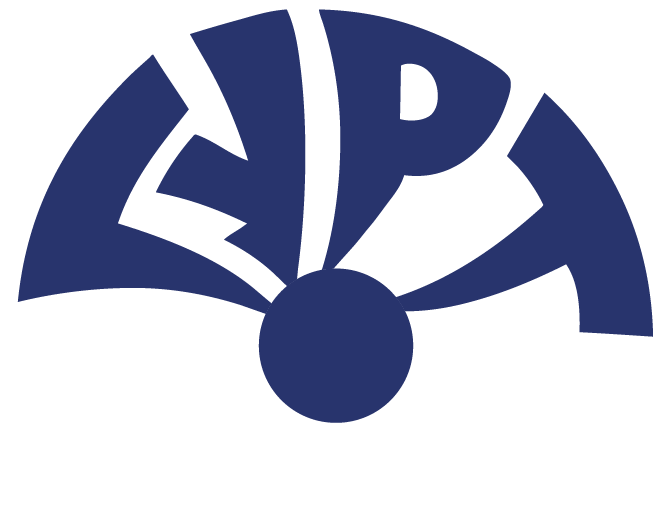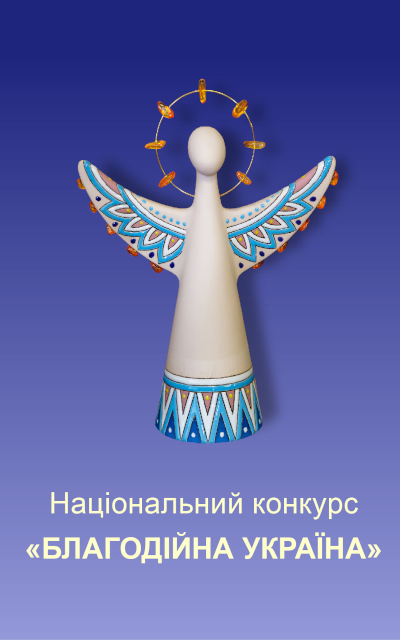


Тендер на проведення весняних таборів
24.01.2020
Learning Together оголошує тендер на проведення весняних таборів для підготовки випускників шкіл із румунською та угорською мовами викладання до зовнішнього незалежного оцінювання з української мови. Дедлайн - 31 січня 2020 року.
These Terms of Reference define the activities to be provided by the EU-funded language component of the Project “Finland’s Support to the Ukrainian School Reform” (Learning Together). The assignment will be implemented as part of Cluster 2 “Education promotion” and it will support MoES in raising awareness and positive attitudes towards the school reform and its benefits among national minorities in the Chernivtsi and Zakarpattia regions.
1. Background info on the project
Learning Together is a four-year collaborative project that started between Ukraine and Finland in July 2018, and was joined by the EU in late 2018. The work scheduled to last until July 2022. The Project is implemented by FCG International.
The project has national coverage and it focuses on supporting the New Ukrainian School (NUS) reform, especially in the primary education, and is designed around three thematic clusters which are inter-linked: Teacher Competence Development, Education Promotion, and New Education Environments.
The total budget is 8 million euros out of which 6 million euros is Finnish funding. In addition, there is a 2-million-euro EU top-up funding tool for enhancing the quality of instruction in Ukrainian ST/L2 among national minorities, provided by the EU.
2. Context of Assignment
The new Law on Education was adopted in Ukraine on September 5, 2017. Article 7 of the Law refers to an increase in subjects taught in the Ukrainian language for national minorities at the secondary education level.
In a letter dated September 29, 2017, the Ministry of Foreign Affairs of Ukraine addressed the Venice Commission, an advisory body in the field of constitutional law, to conclude on Article 7 of the Law on Education, which regulates the use of the state language, as well as minority languages and other languages of education.
In 2018, the Ministry of Education and Science prepared a Roadmap for implementation of the Article 7 “Language of Education” of the Law of Ukraine “On Education”, focusing on the need to improve the quality of teaching Ukrainian among ethnic communities, especially in Zakarpattia and Chernivtsi regions.
Zakarpattia and Chernivtsi are multinational and multicultural regions with Hungarian and Romanian among the minority language groups. The following districts are densely populated by national communities - Hungarian: Berehovе, Vynohradiv, Uzhhorod, and Romanian: Tiachiv, Hertsa, Novoselytsia, Storozhynets, Hlyboka, Chernivtsi. In 2019/2020 school year, in Zakarpattia region, there are 72 schools with the Hungarian language of instruction; and 27 schools with Ukrainian and Hungarian languages of instruction; 12 schools with the Romanian language of instruction and 2 schools with Ukrainian and Romanian languages of instruction. In total, 17192 students receive instruction in Hungarian and 2591 students receive instruction in Romanian in this region. In Chernivtsi region, there are 56 schools with the Romanian language of instruction and 18 – with Ukrainian and Romanian languages of instruction. In total, 13518 students receive instruction in Romanian in this region.
The above-mentioned schools deliver instruction mostly in minority languages, while the Ukrainian language is learned only as a separate subject. These schools do not provide students with enough proficiency in the Ukrainian language to enter tertiary education in Ukraine. A high percentage of the school graduates are failing in independent evaluation tests in the Ukrainian language and literature that is an integral component of their admission to further education.
Spring camps on External Independent Test (ZNO) in Ukrainian for school leavers (11th grade students) who study in national minority languages are some of the most immediate actions within the short-term perspective of the Language component of the Project.
3. Objective
The objective is to prepare 400 students from the Romanian and Hungarian communities of Chernivtsi and Zakarpattia regions for the Ukrainian language ZNO by explaining the format of the exam and motivating them for further preparation, providing students with useful resources and platforms for ZNO preparation. The Spring Camps are to enhance 11th grade students’ proficiency in the Ukrainian language and literature to perform better during final testing and, therefore, to have better chances to enter higher education institutions in 2020.
4. Scope of work
The Service Provider will be contracted to:
4.1. The training for the ZNO will be held in the form of a youth camp which will be delivered during spring holidays (in March 2020).
4.2. The quantity of camps – 6 (60-70 students each) (three in Zakarpattia region and three in Chernivtsi region). The suggested locations: Zakarpattia region: Berehove, Vynogradiv, Tiachiv, Uzhhorod districts; Chernivtsi region: Hertsa, Novoselytsia, Storozhynets districts.
4.3. The duration of the assignment will be a maximum of 3 months (preparation for the camps, Spring Camps and reporting) starting from the commencement of the work. School Camps will be conducted in March 2020 during the spring holidays.
4.4 The content of the language camps should include a series of training sessions on the preparation for the external independent testing in the Ukrainian language and literature. The developed manual (during Spring Camps in 2019) will be used for training of trainers and students.
4.5. The camps will be delivered in two stages.
Stage 1. Training of trainers (ToT)
Objective: to prepare trainers for the Ukrainian Language ZNO Spring Camp
Trainers: 2-4 trainers as ZNO consultants
Participants: 44 ZNO Spring Camp trainers (40 trainers + 4 backup trainers)
Dates: appr. beginning of March 2020
Venue: to be confirmed separately.
Stage 2. Ukrainian ZNO Camps
Objective: to prepare school leavers for the Ukrainian Language ZNO
Trainers and guests: 40 trainers, Keynote speakers
Participants: appr. 400 students of Chernivtsi and Zakarpattia regions
Dates: in March 2020, during the spring vacation.
Venues: tentatively local schools.
5. Expected deliverables and timeline
The Service Provider will submit the following deliverables:
5.1. Draft work plan, methodology, tools and programme of the training/camps
5.2. Implement the activity – ToT and Spring Camps
5.3. Provide a Final Report which shows the methodology used, activities undertaken, successes, challenges, results (planned and unplanned), lessons learned, and future recommendations.
|
Date |
Description of the event |
|
February 2020 |
Programme specification (in cooperation with the Language Adviser of the Project) Call for trainers, selection of trainers (in cooperation with the Language Adviser of the Project) Preparation time |
|
By the end February 2020 |
Submitting a training programme and a list of trainers |
|
Beginning of March 2020 |
Trainings of trainers |
|
23-29 March 2020 (tentatively) |
ZNO Camp |
|
April 2020 |
Reporting |
A finalized work plan, methodology, programme and tools will be approved by the Project.
6. Budget
The budget, details of the assignment, terms and conditions will be specified in the contract between the FCG International Ltd (Contractor) and the local Service Provider.
Payment milestones will be based on the acceptance of the key deliverables by the Project.
7.Submission requirements
The Proposal must include the following:
7.1. A technical proposal not exceeding 10 pages in length including the intended approach and the planned activities, the implementation, the management of the undertaking, including an operational work plan with timelines.
7.2. Breakdown of costs
The budget breakdown must include two separate sections: ‘Fees of experts’ and ‘Other costs’. The fees shall be defined on rates based on working days or working months. The other Costs must be broken down to correspond the Technical Proposal and Work Plan. The Budget Breakdown must be in Euros.
7.3. The Curriculum Vitae of the consultant and for each member of the team (if a team approach is used).
7.4. Official documents proving the status of the organisation and the document proving the financial capacity (annual turnover and profit/loss) of the organisation.
Copies of main registration documents.
Other relevant supporting documents may be attached as an annex.
The proposal must be in English.
8. Evaluation criteria
Proposals will be evaluated based on Quality (90% weight) and Price (10% weight).
The quality of the Proposal will be evaluated based on the following:
8.1. Organisation (10%):
- Previous experience on similar assignments, at least one implemented similar project, preferably in the education sector
- Proven knowledge of the education sector.
8.2. Service Provider’s Team qualifications (40%):
- A Master’s Degree in the field of philology, education or relevant field
- Minimum of three years of professional experience in education or other related field
- Experience in preparing school children to the External Evaluation Test (ZNO), or conducting language camps, including for the representatives of national minorities, preferably in Chernivtsi and Zakarpattia regions
- Excellent written, oral and interpersonal skills; excellent communication skills in English, Ukrainian. Excellent communication skills in Hungarian and Romanian are an asset.
- Familiarity with the New Ukrainian School reform will be an asset.
8.3. Technical Proposal (40%):
- The relevance of the approach and implementation methodology
- The expected impact of the proposed methodology.
Only short-listed candidates will be invited to the interview. Interview will consist of 30 minutes candidate’s presentation of the proposal and its approaches and potential team, and 15 minutes of Q&A session.
9. Deadline for Proposals
The final application must be submitted by 31 January 2020 via email at [email protected] and [email protected].
Please note that all written communication must be in English. Further instructions for the tender are given only from the email mentioned above. Any further information or advice obtained from other sources may be disregarded in the tender evaluation.
10. Guiding principles
Manual for Bilateral Programmes by the Ministry for Foreign Affairs, revised version 2018 https://um.fi/publications/-/asset_publisher/TVOLgBmLyZvu/content/manual-for-bilateral-programmes is applied in the planning and implementation of this assignment. This manual is applied in all cooperation that has been agreed between Finland and Ukraine.
11. Mandate
The Service Provider is expected and entitled to discuss issues relevant to the assignment with relevant parties, government authorities and other relevant organizations and individuals, but the team does not have any mandate to make commitments on behalf of government authorities in Ukraine and Finland, or European Union, or on behalf of the Contractor, FCG International Ltd, especially.
Please see Ukrainian at:
https://drive.google.com/open?id=136hptKCNiPMfGndrqUsh1_kiYYnb8Q9t



Коментарі